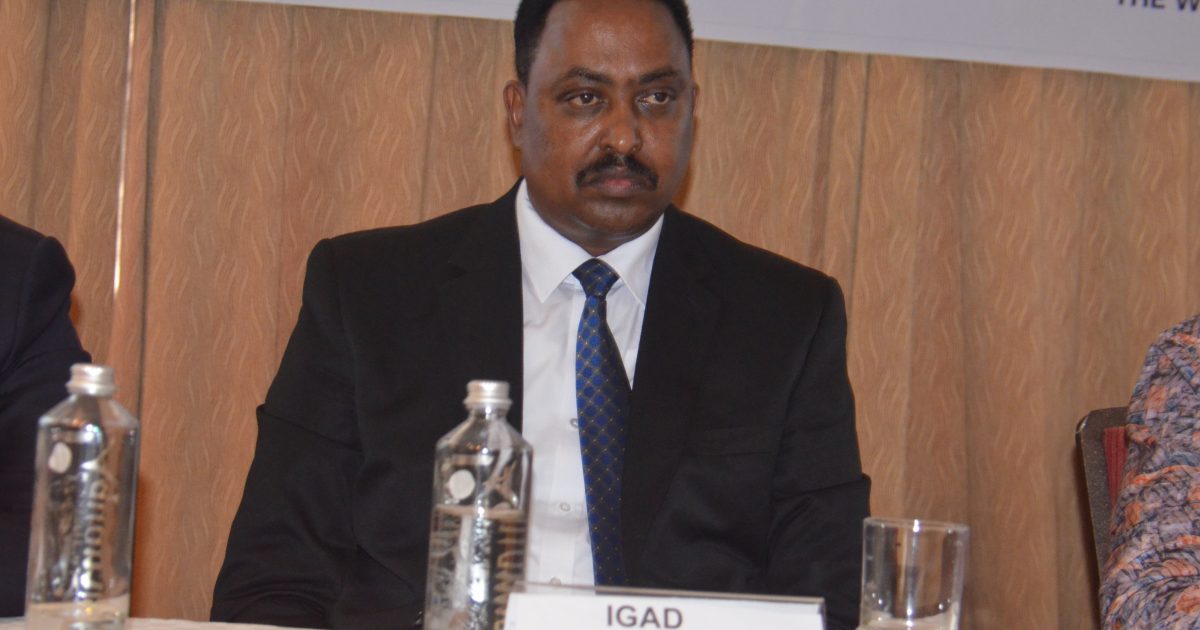A climate outlook forum is underway in Mombasa to raise awareness about the use of climate services and to collectively address climate change adaptation and disaster risk management, in order to improve livelihoods and build resilience.
The 54th Great Horn of Africa Climate Outlook Forum (GHACOF) meeting involving national experts and senior policy officials representing governments, regional organizations, the private sector, development partners and international agencies declared climate change and food insecurity as two interlinked problems that are contributing to underdevelopment of the Inter-Governmental Authority on Development (IGAD) region.
Speaking on Monday during the official opening of the week-long meeting, the IGAD Executive Secretary (ES), Workneh Gebeyehu said about 10 per cent of the region’s 250 million people are chronically food insecure while over 80 per cent of the population derives their livelihood from agriculture and therefore factors that affect land productivity directly impact their welfare.
Gebeyehu observed that to address the problems of food insecurity and environmental degradation, IGAD is working with the Member States and partners to improve food access especially in the chronically food insecure areas by boosting agricultural production and facilitating the movement of food from surplus producing areas to the deficit areas.
The ES noted that IGAD is also committed to strengthening rational utilization of trans-boundary natural resources, promoting the use of renewable energy resources and rational management of freshwater resources in the region.
“We are very much involved in environmental assessments and monitoring, cooperation in addressing trans-boundary environmental challenges and implementation of the multi-lateral environment agreements,” said Gebeyehu.
Climate variability and climate change has significant impact on the social and economic development in the IGAD region and other parts of Africa particularly regions exposed to the shocks of climate extremes mainly due to the economic significance of our rain-fed agriculture.
He added climate related risks affect other aspects of development, ranging from water resources, health, energy, and tourism where scarce resources such as water and pastures often result in conflicts that lead to insecurity and displacement.
The recent advances in science and technology offer the prospect of further improvements in quality of climate services where IGAD through the IGAD Climate Prediction and Applications Centre (ICPAC) avails and promotes accessibility of timely climate early warning advisories. Furthermore, the centre supports specific sector applications to enable the region cope with various risks associated with climate variability and changes.
The executive was pleased since ICPAC organizes regional climate outlook forums before the onset of the major rainfall seasons to release regional consensus climate guidance, assess associated impacts and develop sector specific mitigation strategies.
“We have since May 2019 been providing objective seasonal climate forecast replacing the consensus-based climate outlooks where ICPAC has greatly improved in the dissemination and communication of climate early warning advisories and has been quoted by most of global mainstream media outlets,” he said.
The executive further noted IGAD through ICPAC is committed to providing high quality co-designed, co-produced and co-owned climate services. IGAD is also spearheading the development of early warning framework for early action.
He appealed to all Member States and other end users to utilize the early warning information that we provide in a timely manner with corresponding rapid early actions and response.
By Joseph Kamolo




